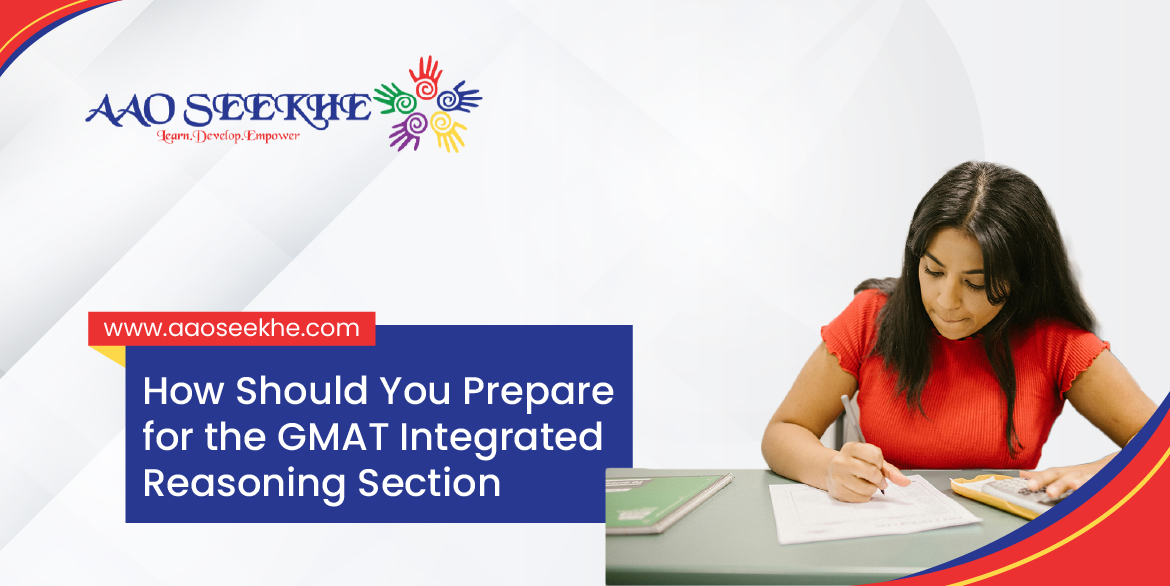
How Should You Prepare for the GMAT Integrated Reasoning Section?
The GMAT Integrated Reasoning (IR) section is the determining part of the section for the test that evaluates your strategy to observe the data in many formats and resources. Effective time management, planning, and focus are required when preparing for the GMAT's Integrated Reasoning (IR) part. This section assesses your ability to comprehend, evaluate, and synthesize material presented in a variety of formats, including text, tables, and graphs.
Understand the Structure of the IR Section
You have 30 minutes to respond to the 12 questions in the IR Section. These studies can be conducted using a variety of techniques, including tabular analysis, visual interpretation, multi-source reasoning, and two-part analysis. Since every format has its style, it is essential to familiarize yourself with the wide variety of question kinds. Because multi-step questions are designed to assess your level of understanding rather than your speed, it is crucial to prioritize accuracy above speed.
Why the Section on Integrated Reasoning Is Important
The GMAT's Integrated Reasoning (IR) portion in 2012 assessed a candidate's capacity to monitor and synthesize data from several sources, a critical competence in the data-driven business world of today. GMAT IR has been becoming increasingly important for admission to business schools, even though it has no direct effect on the final GMAT score of 800. It also demonstrates your aptitude for:
- Compile and organize complicated data.
- Make use of data to provide actionable insights.
- Handle problem-solving under time pressure.
The importance of business school admissions is growing: According to the survey, about 59% of business schools believe that an applicant's capacity to thrive in a challenging MBA program is influenced by their performance in the IR segment. Candidates' IR scores, which demonstrate their readiness for coursework using a lot of data, are evaluated by several prestigious business schools. Business schools recognize the link between the competencies evaluated in this domain and the requirements of modern management.
Improving Opportunities for Careers
Career prospects outside of admissions can also be greatly enhanced by the IR section. These days, firms only use data analytics for operational performance, strategy formulation, and financial planning. Only organizations are searching for someone who can analyze complex data and draw meaningful insights. Strong performance in the IR part allows candidates to show that they can work well in data-centric settings, which could help them land a job or switch careers.
Strategies for Preparing for the Integrated Reasoning Section
Improve your data interpretation abilities
The IR section can conduct an accurate analysis of the data if you concentrate on your abilities. Start by learning about the different kinds of questions that can be found in the different styles of data presentation, including charts, graphs, and tables. Develop your ability to comprehend the connections among the material so that you can make sense of it. This ability will help you respond to inquiries more effectively.
Use the Official GMAT Resources to Practice
It is not beneficial to use official GMAT preparation materials. These resources include detailed explanations and sample IR questions. By following the approved materials, you learn how to answer the questions logically.
Focus on Time Management
Time management is very important for you because you have to solve 12 questions within 30 minutes. Your goal is to complete the questions in two and a half minutes while you practice them. By practising frequently, you can increase your speed and prevent spending too much time on a single question.
Develop Your Critical Thinking Skills
Take advantage of the IR section to improve your critical thinking skills. If you want to get better at critical thinking, you should be working on puzzles, case studies, and real-world data evaluation. You will improve your capacity to use logical reasoning and synthesize knowledge by making such an effort.
Review your mistakes and gain knowledge
Examine your performance on practice questions to determine your areas of weakness. Aside from your mistake, comprehend the idea of reasoning to make your tactics more accurate. Learning the IR section requires constant review.
Resources for Suggested Practice
- Aao Seekhe: It offers individualized coaching to improve your IR performance, specific time-management techniques for inquiries involving a lot of data, and step-by-step instructions.
- LilacBuds: Offers group study sessions for peer learning and motivation, focusing on holistic preparation by combining strategy and practice.
- Jamboree Education Pvt. Ltd.: Well-known for its extensive GMAT teaching experience, offering private tutoring, self-paced courses, online live training, and classroom instruction.
- Kanan.co GMAT Study Guides: Known for straightforward explanations and detailed solutions that have raised the bar for standardized test preparation.
- The Princeton Review's Manya: Specialized GMAT preparation courses that concentrate on particular subject areas with course materials, practice tests, booster sessions, and individualized feedback.
Conclusion
The GMAT's Integrated Reasoning part presents a special difficulty, but with the correct preparation, it can turn into a strength. You will be prepared to handle this section if you comprehend the many kinds of questions, develop your ability to interpret facts, practice using trustworthy sources, and steer clear of typical hazards. Consistent work will lead to success, regardless of whether you're using official GMAT resources, Aao Seekhe, Manya and Kanan's insights, or Jamboree's demanding practice exams. Remember that becoming proficient in IR shows that you are prepared for the analytical requirements of business school and beyond, in addition to improving your GMAT score.